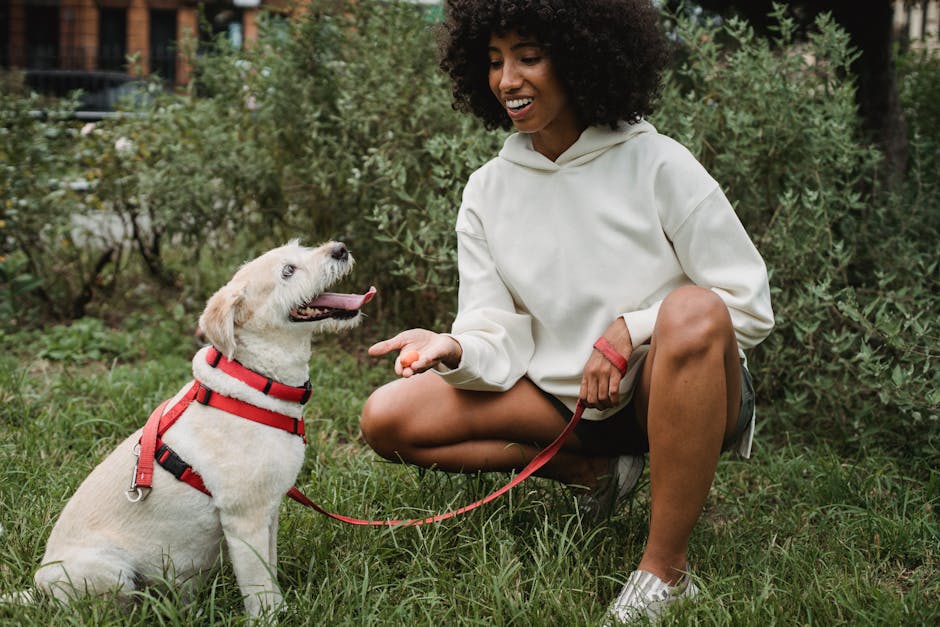Historical Background of Puppy Training Techniques
The Early Days of Training
The art of training dogs dates back thousands of years, with evidence suggesting that humans and canines have had a symbiotic relationship since prehistoric times. Early trainers focused primarily on utility, teaching dogs to assist in hunting and herding. Techniques were largely based on dominance hierarchies, where handlers often resorted to forceful methods to establish control.
Evolution of Training Methods
As cultures evolved, so did the understanding of canine behavior. The 19th century saw the emergence of humane training methods championed by influential figures like Konrad Lorenz and John Paul Scott. Their studies emphasized the importance of positive reinforcement, fostering a bond between human and animal based on trust rather than fear. This shift laid the groundwork for the modern, kinder techniques we employ today.
Current Trends and Statistics in Puppy Training
Rise of Positive Reinforcement
In recent years, positive reinforcement has not only become the preferred method among trainers but also a notable trend among pet owners. Studies indicate that 80% of dog trainers in the United States now use reward-based methods. This shift reflects a growing awareness of animal welfare and the effectiveness of encouraging desirable behaviors rather than punishing undesirable ones.
Impact of Technology on Training
The incorporation of technology into training practices is also noteworthy. Tools such as clickers and training apps have gained popularity, offering owners immediate feedback and structured guidelines. Recent statistics show that over 60% of puppy owners actively use training apps to monitor progress and obtain tips, showcasing a modern approach to learning that combines tradition with innovation.
Practical Tips for Successful Puppy Training
Establishing a Foundation with Basic Commands
Teaching basic commands such as “sit,” “stay,” and “come” is essential for any puppy. Start in a quiet environment with minimal distractions, using treats to motivate your pup. Consistency is key—ensure everyone in the household uses the same commands and rewards to avoid confusion. Remember, patience is critical; some puppies may take longer to grasp concepts than others.
Socialization Is Key
Early socialization can make a significant difference in shaping your puppy’s behavior as it grows. Introduce your pup to various environments, people, and other animals to help them develop confidence and reduce fearfulness. Puppy classes and playdates can offer structured environments for safe interaction, promoting well-rounded social skills that will serve your puppy well into adulthood.
Future Predictions and Innovations in Puppy Training
Integrating AI and Machine Learning
As technology continues to evolve, the future of puppy training may involve artificial intelligence and machine learning. Innovations such as smart collars equipped with behavioral tracking capabilities could provide real-time feedback to owners, allowing for tailored training sessions based on individual puppy needs. This predictive technology could revolutionize how training is approached, making it more efficient and effective.
Expanding the Role of Professional Trainers
The demand for professional dog trainers is expected to increase significantly, as more pet owners seek guidance to navigate complex training challenges. Future training programs may emphasize specialized certifications focusing on behavioral science and emotional intelligence, creating a new breed of trainers adept at understanding the nuances of canine psychology. This evolution in the profession could lead to deeper, more effective training methodologies and greater harmony between dogs and their human companions.
Final Thoughts on The Best Puppy Training Techniques
Training your puppy can be a rewarding journey filled with love and learning. Utilizing techniques such as positive reinforcement, consistency, and patience will help forge a strong bond between you and your furry friend. Remember that every puppy learns at their own pace, so celebrate small victories and enjoy the process of shaping a well-behaved companion.
Further Reading and Resources
-
“The Culture Clash” by Jean Donaldson – This book provides insight into understanding canine behavior through a modern training lens, emphasizing the importance of empathy in training.
-
“Dog Training For Dummies” by John Wiley & Sons – A comprehensive guide for both beginners and experienced dog owners, covering various training techniques and common behavioral issues.
-
“The Power of Positive Dog Training” by Pat Miller – This resource focuses solely on positive reinforcement methods, offering step-by-step guidance to foster healthy relationships between owners and their dogs.
-
ASPCA Training Resources – The American Society for the Prevention of Cruelty to Animals (ASPCA) provides a wealth of articles and videos on dog training and behavioral management.
-
Kanine Academy – An online training platform that delivers a variety of video lessons, covering everything from basic commands to specialized skills, aimed at enhancing your dog’s learning experience.





